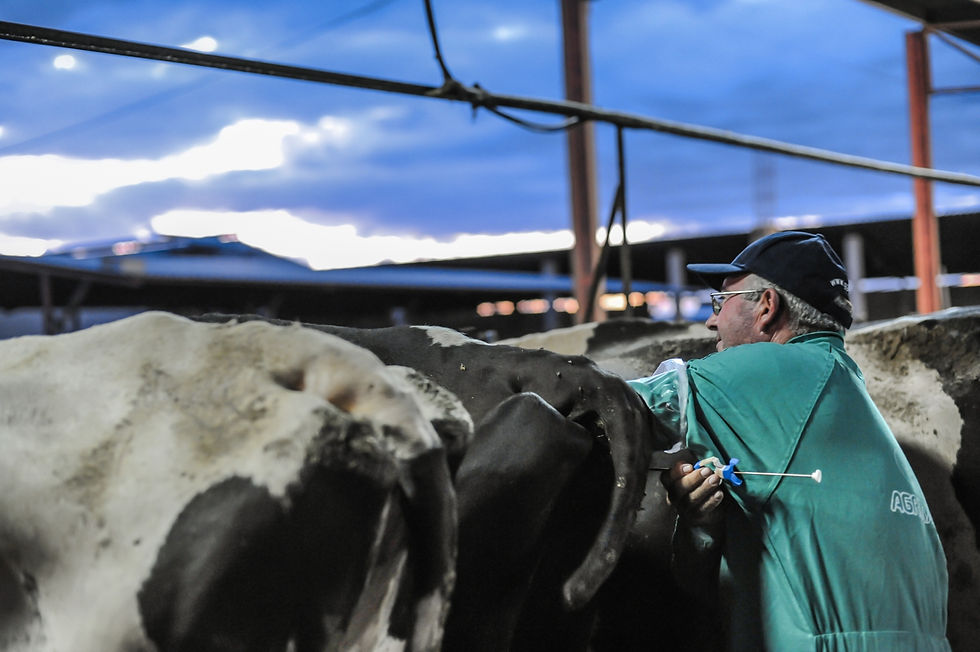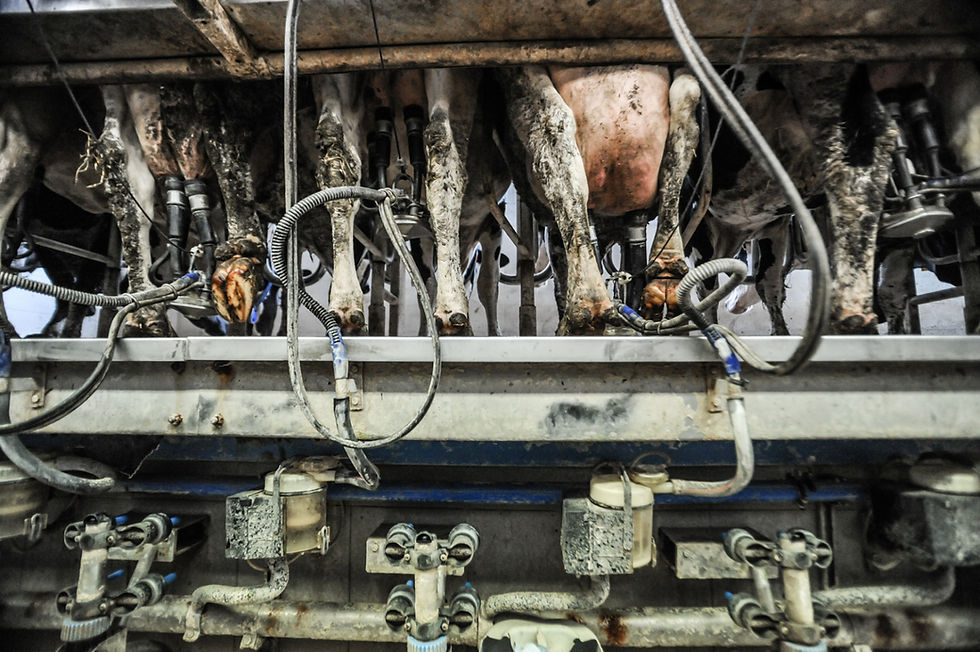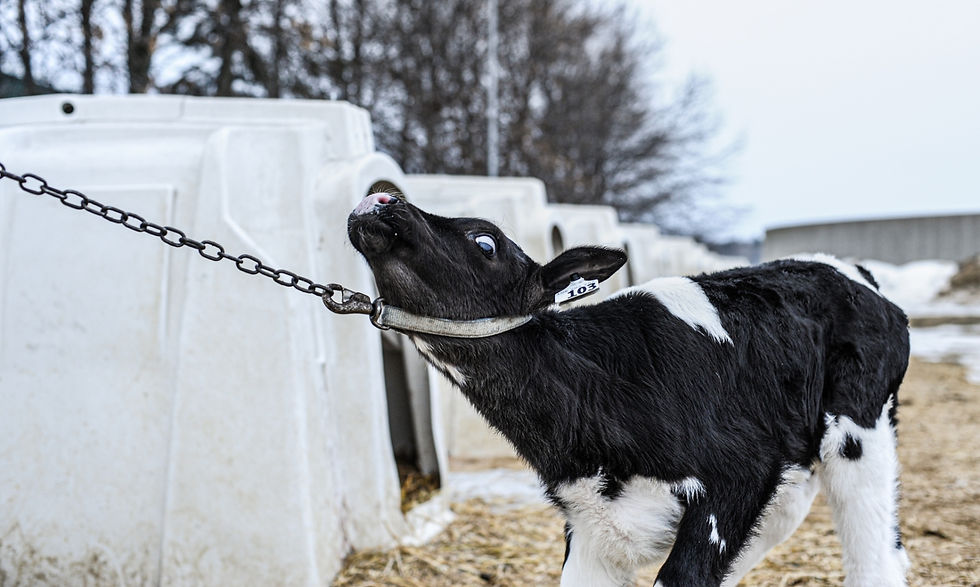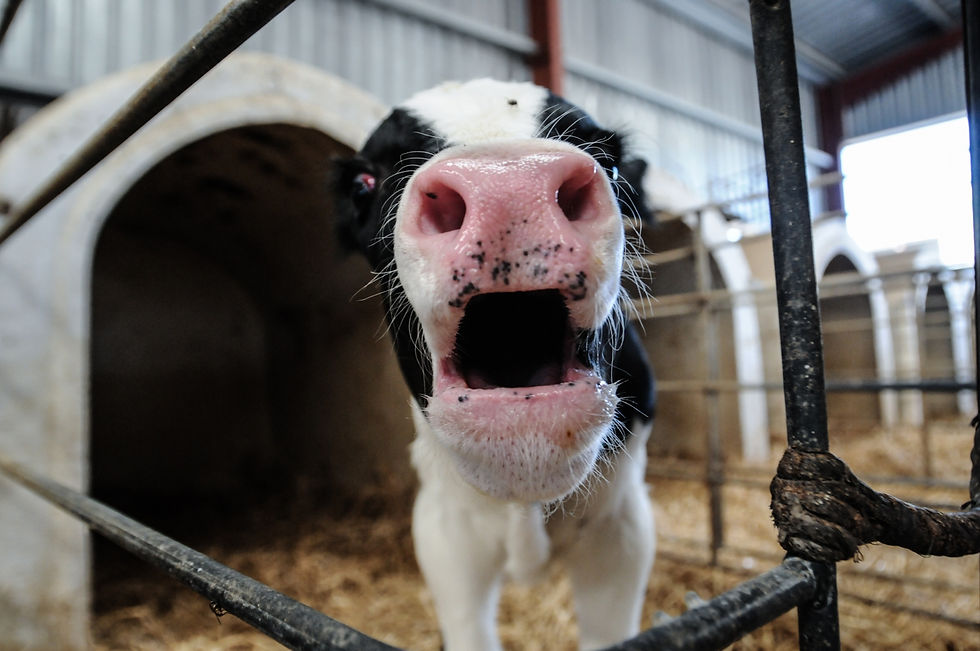Cows can "say" how they feel to others, reveals study
- Aline Baroni
- Jan 21, 2020
- 3 min read
A new study shows that cows can "say" what they feel according to the tone of their moos. Each cow has individual vocal characteristics that they keep during their whole lives. In addition, they can also change their pitch depending on their emotions. With this, they can clearly express excitement, arousal, engagement or distress while communicating with the herd about positive situations, for example, during a fertile period or when they know food is coming, or negative situations, for example, when they are not allowed to eat or are separated from the rest of the herd.
The research was conducted by the University of Sydney and published in Scientific Reports. Over a five month period, 18 dairy cows were recorded, resulting in 333 samples of cow vocalizations which were later analysed using acoustic analysis programs. This experiment is being called the "Google translate for cows”.
Before this study, it was already known that mother cows could communicate with their offspring efficiently so that the babies would recognize their voices and wouldn't respond to other "moos". The other way is also true: mothers are more likely to respond, by moving their ears and/or looking, turning or walking towards the sound, to their own calves vocalizations rather than to others.
“Cows are gregarious, social animals. In one sense it isn’t surprising they assert their individual identity throughout their life and not just during mother-calf imprinting”, said the lead researcher, Alexandra Green. “But this is the first time we have been able to analyse their voices to have conclusive evidence of this trait.”
Green can even identify which cow is speaking just by hearing their voices, just like we do among human animals. Once we thought "conversations" like this were something exclusive of our species. But as time passes by new discoveries show that more and more animals are capable of this, which is called "turn talking".
Another publication from 2018 lists several studies that show non-human animals can coordinate exchanges between individuals by following some principles such as alternating turns, often making it relatively short and trying not to interrupt who's speaking.
In the case of cows, we can't even imagine how it feels to be such social and communicative animals and, at the same time, be exploited by the food industry. For dairy production, for example, they are inseminated and are forced to become pregnant regularly during their lifetime, separated from their babies right after birth (certain farms do it just a few hours after, for them not to bond and so that the calves don't drink their milk).
Dairy cows are then attached to machines to suck their milk so that it can be sold to humans. In most farms, they are kept in horrifying conditions with poor hygiene, and with little or no individual veterinary care, which can cause them painful and serious udder infections. At the end of their lives, which are shortened by the harsh exploitation of their bodies, they are sent to slaughter.



Photo: We Animals Media
In most farms, the calves are kept separated from their mothers and from each other, growing up without any stimulation. After some months, the females will replace the cows that are sent to slaughter and step into the insemination-pregnancy-machine cycle. The males are sent to slaughter at an early age because they are not profitable for the dairy industry. In the worst cases, they are discarded days after birth by cruel methods such as being hammered on their heads, suffocation, or starvation.


Photo: We Animals Media
Check out our investigation in Chile:
If you also think animals deserve better, please consider stop consuming them. Ditch dairy, meat, and eggs.









Thank you for sharing this wonderful resource! It's really helpful and informative.
By the way, I'd like to share another great resource that I frequently use - AllFreeNovel.cc . It's a free platform offering a vast collection of Korean, Japanese, and Chinese web novels. If you enjoy reading online novels, you might want to check it out. They update daily with new chapters and everything is completely free to read.
----------------------------------
Online games Free
Ragdoll Hit Online
Font Generator Page
Great question! No, the Friction Stir Welding (FSW) tool isn’t exactly the same for lap and butt welding, though the basic principle remains similar. The main difference lies in the tool design and setup. For lap welding, the tool is typically designed to handle the overlap of materials, ensuring good mixing and a strong bond at the joint. On the other hand, for butt welding, the tool needs to accommodate the butt joint's alignment and often requires a more robust tool to handle the higher forces involved in joining materials end-to-end.
ragdoll hit
That is amazing. Thanks for sharing this great news and geometry dash lite which is intriguing.